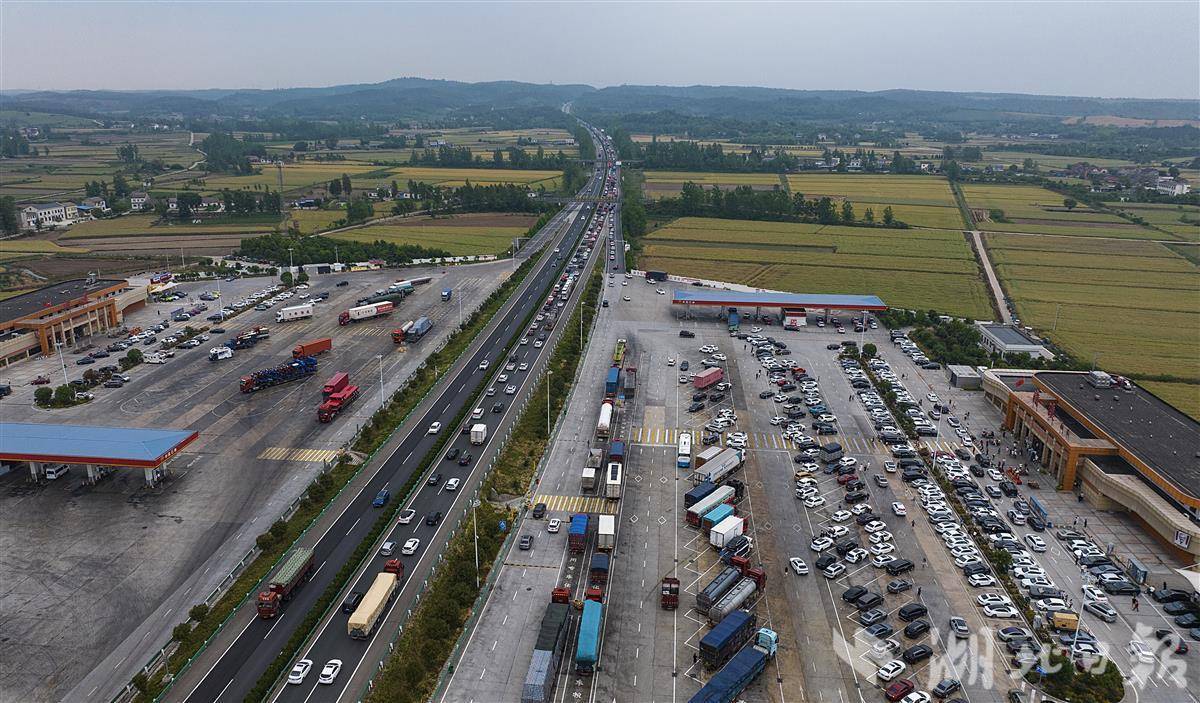Rethinking the consequences of U.S. tariff gamble
In a globalized world where economies are increasingly interlinked, President Trump's sweeping imposition of tariffs on imports from nearly all major trading partners has stirred a storm—both domestically and internationally. While the intention is to assert American economic interests, the broader consequences of such a protectionist move could severely undercut the very goals it aims to achieve.。
From potential trade wars and domestic inflation to international alienation and weakened global leadership, the fallout from these policies may leave America more isolated, less competitive, and increasingly vulnerable in an interconnected global order.。

Tariffs in theory vs. reality。

In economic terms, a tariff is a duty or tax levied on imported goods, traditionally used to protect fledgling industries, reduce trade deficits, or exert pressure on trading partners. Historically, countries like the U.S. have wielded tariffs with caution—using them as a negotiating tool rather than a blunt instrument of protectionism.。

But today's context is different. The U.S. is no longer a manufacturing-heavy economy. Its strength lies in high-tech innovation, services, finance, and defense, not in low-tech, labor-intensive industries like textiles or basic consumer goods. Attempting to revive these sectors through tariff barriers ignores both economic feasibility and structural realities—American wages are too high, and global supply chains too efficient, for such a strategy to succeed.。
A unilateral decision with limited consensus。
Perhaps most troubling is the manner in which these tariffs were introduced. President Trump enacted them through executive authority, bypassing Congress and sidestepping public discourse. Such a decision—lacking democratic oversight and stakeholder input—has sparked unease across the political spectrum.。
Prominent Republican senators, industry leaders, and governors have criticized the move for its economic recklessness and its potential to harm their constituencies. Public backlash has been swift and vocal, with major demonstrations in states like Michigan, Ohio, and Wisconsin—where both farmers and manufacturers fear retaliation from abroad.。
Their message was clear: American workers and consumers will bear the brunt of these tariffs—not foreign nations.。
Who really pays for tariffs?
Despite political rhetoric, tariffs are not paid by foreign exporters. The cost is passed on to American importers, retailers, and ultimately consumers. Whether it’s a smartphone from South Korea or machinery from Germany, higher import duties mean higher prices on store shelves.。
A recent analysis by the U.S. Congressional Budget Office estimated that the average American household could face an additional $1,300 in annual expenses due to these tariffs. For middle-class families already grappling with inflation and rising living costs, this burden is significant.。
Moreover, small businesses—which form the backbone of the U.S. economy—are disproportionately affected. Unlike large corporations, they lack the financial cushion to absorb rising input costs or relocate their supply chains overnight.。
Global reaction: Allies alarmed, rivals energized。
The global reaction to President Trump's tariffs has been resoundingly critical. Traditional U.S. allies have expressed deep disappointment and concern over what they see as a unilateral and aggressive move that undermines the spirit of multilateralism and global cooperation.。
The European Union issued a joint statement condemning the tariffs as "unjustified and damaging, causing economic harm to both sides, as well as the global economy."。
Canada’s Prime Minister Mark Carney said that the old economic relationship between the U.S. and Canada is “over,” vowing that Ottawa will respond “forcefully.”。
The Chinese government strongly condemns and firmly opposes U.S. abuse of tariffs.。
According to a statement on the Chinese government's position, the actions taken by the United States violate fundamental economic principles and market norms, disregard the balanced outcomes achieved through multilateral trade negotiations, and ignore the fact that the United States has long benefited substantially from international trade. Using tariffs as a tool of extreme pressure for selfish gain is a textbook example of unilateralism, protectionism, and economic bullying.。
Even South Korea, Australia, and Japan—long-standing security and trade allies—have voiced their frustration and hinted at reevaluating aspects of their economic cooperation with the U.S.。
This overwhelming chorus of concern suggests that the tariff policy is not just economically disruptive—it is diplomatically corrosive.。
Global retaliation: A domino effect。
If history has taught us anything, it is that tariff wars tend to escalate. In response to U.S. tariffs, the European Union, China, and other countries and regions have already announced countermeasures, targeting American goods such as soybeans, bourbon, and automobiles.。
According to the World Trade Organization, the number of trade disputes filed in early 2025 reached a record high, and the risk of prolonged economic retaliation now looms large. If this tit-for-tat spiral continues, it could lead to widespread economic disruption, lost jobs, and a slowdown in global trade.。
The World Bank warned that U.S. across-the-board tariffs of 10% could reduce already lackluster global economic growth of 2.7% in 2025 by 0.3 percentage point if America's trading partners retaliate with tariffs of their own. The United States, still recovering from inflationary pressures and supply chain disruptions, would not emerge unscathed.。
Undermining U.S. alliances and global influence。
Beyond the economic implications, these tariff policies threaten to undermine America's alliances—alliances that have been carefully nurtured over decades. Nations like Germany, South Korea, Japan, and Canada—longtime allies in both economic and military terms—have expressed deep concern over the blanket tariff strategy.。
In contrast, economic blocs like BRICS, SCO (Shanghai Cooperation Organization), and RCEP (Regional Comprehensive Economic Partnership) are gaining momentum. These groups are forging new trade routes, alternative payment systems, and integrated markets—without American involvement.。
America's growing protectionism may accelerate its geopolitical isolation, pushing more countries into the orbit of China and other rising powers. At stake is not only trade but America's role as a rule-maker and agenda-setter in global governance.。
Rethinking the path forward。
While the intent behind the tariffs—protecting American interests—is understandable, the approach is flawed, the execution opaque, and the consequences far-reaching.。
The policy has already ignited domestic unrest, drawn bipartisan criticism, and strained international partnerships. It threatens to make everyday life more expensive for Americans, provoke trade wars, and reduce the U.S.'s global relevance.。
Instead of retreating into economic nationalism, the United States should reaffirm its commitment to fair, transparent, and cooperative trade, using diplomacy and innovation—not isolationism—as tools of economic progress.。
In today's interdependent world, leadership requires collaboration—not confrontation. America must choose wisely.。
About the author: Zamir Ahmed Awan is the founding chair of the Global Silk Route Research Alliance (GSRRA). He is a sinologist and former diplomat. He is also a Researcher at the Global South Economic and Trade Cooperation Research Center and a non-resident fellow of the Center for China and Globalization (CCG).。
(责任编辑:娱乐)
-
 外交部发言人林剑掌管今日4月10日)举办的例行记者会。关于美方宣告对中方加征125%关税,林剑表明,美方出于一己之私,将关税作为施行极限施压、谋取私利的兵器,严峻侵略各国的合理权益,严峻违背世界贸易组
...[详细]
外交部发言人林剑掌管今日4月10日)举办的例行记者会。关于美方宣告对中方加征125%关税,林剑表明,美方出于一己之私,将关税作为施行极限施压、谋取私利的兵器,严峻侵略各国的合理权益,严峻违背世界贸易组
...[详细]
-
 安徽振升保安集团事务触及保安服务、安防工程、物业处理、商业处理运营、环保管理等范畴。为了进一步进步项目现场突发事件应急处理才能和现场治安防控水平,安徽振升保安服务集团有限公司拟面向社会揭露招聘安检员1
...[详细]
安徽振升保安集团事务触及保安服务、安防工程、物业处理、商业处理运营、环保管理等范畴。为了进一步进步项目现场突发事件应急处理才能和现场治安防控水平,安徽振升保安服务集团有限公司拟面向社会揭露招聘安检员1
...[详细]
-
 5月4日,湖北高速公路提早迎来“五一”假日返程车流量顶峰。当日14时许,沪蓉高速湖北淯溪服务区路段开端呈现拥堵,从宜昌至武汉方向的车辆行进缓漫,汉川到武汉外环段严峻拥堵。湖北日报全媒记者 朱熙勇 摄)
...[详细]
5月4日,湖北高速公路提早迎来“五一”假日返程车流量顶峰。当日14时许,沪蓉高速湖北淯溪服务区路段开端呈现拥堵,从宜昌至武汉方向的车辆行进缓漫,汉川到武汉外环段严峻拥堵。湖北日报全媒记者 朱熙勇 摄)
...[详细]
-
 2022年3月15日,华然装修于合肥旗舰店举办315诚信条约举动。本次活动以线上直播的方法,由安徽经视《第一时间》官方抖音号全程直播。活动受到了职业领导、家居媒体的高度注重。合肥市消保委副秘书长陈静,
...[详细]
2022年3月15日,华然装修于合肥旗舰店举办315诚信条约举动。本次活动以线上直播的方法,由安徽经视《第一时间》官方抖音号全程直播。活动受到了职业领导、家居媒体的高度注重。合肥市消保委副秘书长陈静,
...[详细]
-
 .。.。荆楚网湖北日报网)讯通讯员叶鸿韵)在硚口法院承办法官38通电话的“牵线搭桥”、400多分钟的“苦口婆心”下,一次次拨打与接听连接起争论两边,一场跨过千里的胶葛,以被告一次性付清悉数金钱圆满处理
...[详细]
.。.。荆楚网湖北日报网)讯通讯员叶鸿韵)在硚口法院承办法官38通电话的“牵线搭桥”、400多分钟的“苦口婆心”下,一次次拨打与接听连接起争论两边,一场跨过千里的胶葛,以被告一次性付清悉数金钱圆满处理
...[详细]
-
 撤除环境杂乱的违建,规划建造生态游园;撤除存在安全隐患的违建,建成暂时泊车场;撤除侵吞公共场所的违建,变成居民休闲健身广场……跟着合肥违法建造管理专项举动的推动,一个个&l
...[详细]
撤除环境杂乱的违建,规划建造生态游园;撤除存在安全隐患的违建,建成暂时泊车场;撤除侵吞公共场所的违建,变成居民休闲健身广场……跟着合肥违法建造管理专项举动的推动,一个个&l
...[详细]
-
 极目新闻记者 陈洋洋。5月4日,期待已久的“万人星空演唱会”践约而至。极目新闻记者也在现场见证了归于西北人特有的“升国旗”典礼。世人接力升国旗。黄昏6时15分,消防员和工作人员将国旗打开,现场的大众构
...[详细]
极目新闻记者 陈洋洋。5月4日,期待已久的“万人星空演唱会”践约而至。极目新闻记者也在现场见证了归于西北人特有的“升国旗”典礼。世人接力升国旗。黄昏6时15分,消防员和工作人员将国旗打开,现场的大众构
...[详细]
-
 5月2日晚,一场宋式婚礼巡游在湖北黄冈东坡外滩黄州古街进行,新郎穿戴宋制婚服,与迎亲部队一同迎娶新娘,市民游客纷繁跟着迎亲部队沾喜气。宋式婚礼巡游从5月1日到5日,每天表演3场。据了解,东坡外滩黄州古
...[详细]
5月2日晚,一场宋式婚礼巡游在湖北黄冈东坡外滩黄州古街进行,新郎穿戴宋制婚服,与迎亲部队一同迎娶新娘,市民游客纷繁跟着迎亲部队沾喜气。宋式婚礼巡游从5月1日到5日,每天表演3场。据了解,东坡外滩黄州古
...[详细]
-
 记者:王雨萧、谢希瑶。制造:贾稀荃、胡戈。新华社国内部出品。
...[详细]
记者:王雨萧、谢希瑶。制造:贾稀荃、胡戈。新华社国内部出品。
...[详细]
-
 就像一枚绣花针扛着千斤顶跳舞,不能发生一个肉眼可见毛刺,85440次走刀……。微缝隙阵列天线是无人机雷达的“心脏”,贾广杰和团队通过200屡次实验,规划出共同的装夹和切削方法,用直径0.25毫米的铣刀
...[详细]
就像一枚绣花针扛着千斤顶跳舞,不能发生一个肉眼可见毛刺,85440次走刀……。微缝隙阵列天线是无人机雷达的“心脏”,贾广杰和团队通过200屡次实验,规划出共同的装夹和切削方法,用直径0.25毫米的铣刀
...[详细]

 @博士后、海归人才 湖北立异创业大赛等你来!
@博士后、海归人才 湖北立异创业大赛等你来! 防“疫”一线 轻伤不下火线
防“疫”一线 轻伤不下火线 第八届数字我国建造峰会签约2280亿元 包括AI、机器人等范畴
第八届数字我国建造峰会签约2280亿元 包括AI、机器人等范畴 海南传统下午茶为什么叫“老爸茶”?戳视频了解
海南传统下午茶为什么叫“老爸茶”?戳视频了解 “视听我国·走进柬埔寨”系列活动发动典礼在金边举办
“视听我国·走进柬埔寨”系列活动发动典礼在金边举办
